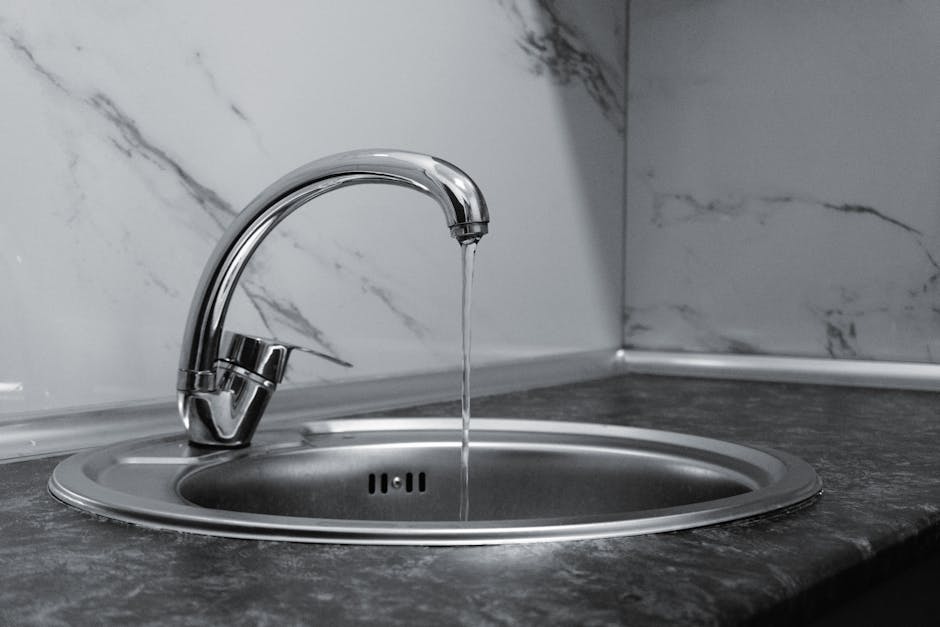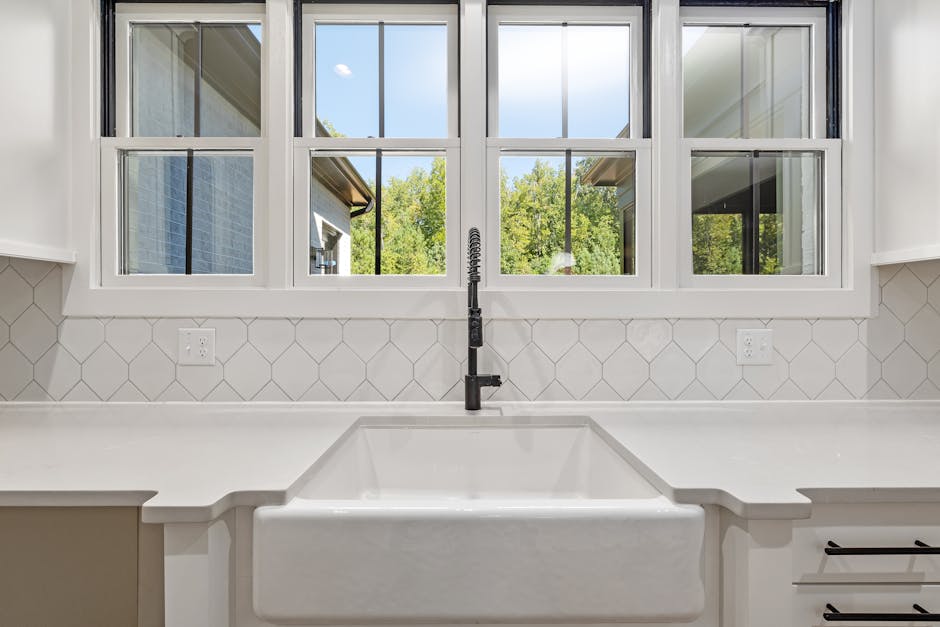
Common Causes of Why AC Won't Turn On in Heat in Sacramento Area Homes
This isn't just an inconvenience; it can be a serious comfort and even health issue in temperatures that routinely climb above 100 degrees Fahrenheit. Understanding the common reasons why your AC might not turn on can help you diagnose the problem and determine if it's something you can address or if it requires professional attention.
One of the simplest yet most overlooked culprits is a clogged air filter. A dirty filter restricts airflow, causing the unit to work harder and potentially leading to a freeze-up or even preventing the system from cycling on. Sacramento's often dusty conditions and high pollen counts mean filters can get dirty quickly.
- Thermostat Malfunction: The thermostat is the brain of your AC system. If it's set incorrectly, has dead batteries, or is experiencing an electrical fault, it might not be sending the 'on' signal to your unit.
- Tripped Circuit Breaker: An overworked AC unit, especially during extreme heat, can draw too much power, causing its dedicated circuit breaker to trip as a safety measure.
- Faulty Capacitor: The capacitor is a critical electrical component that provides the initial jolt of electricity to start the compressor and fan motors. If it's weak or blown, the unit won't be able to start. This is a common failure point for units working overtime in hot climates.
- Refrigerant Leaks: Low refrigerant levels due to a leak can cause the system's pressure sensors to prevent the unit from turning on to protect the compressor from damage.
- Frozen Evaporator Coils: Poor airflow (often from a dirty filter), low refrigerant, or continuous operation can cause the indoor coils to freeze solid, obstructing airflow and eventually leading the unit to shut down or fail to start.
- Motor Issues: Problems with the outdoor fan motor or the indoor blower motor will prevent the unit from operating correctly or at all.
Each of these issues, while seemingly minor, can prevent your AC from providing the essential cooling you need. Early detection and understanding are key.
Why This Problem Hits Harder Here in Sacramento
Sacramento's unique climate and housing characteristics often exacerbate AC issues, making the problem of a non-starting unit particularly urgent. Our region is notorious for its long, intensely hot summers, with sustained periods of triple-digit temperatures. This relentless heat puts immense strain on air conditioning systems, often pushing them beyond their design limits.
Unlike areas with milder summers, AC units in Sacramento homes are not just used for comfort; they're vital for health and safety. The constant demand means components wear out faster, especially those critical for startup like capacitors and motors. Many homes in the Sacramento area, particularly older tract homes, may have original AC units that are less efficient and more prone to breakdowns under modern load conditions. The dry, dusty Delta breeze, while often providing some evening relief, can also carry particulate matter that quickly clogs outdoor condenser coils and indoor filters, leading to reduced efficiency and potential system failure. This makes regular maintenance, such as filter changes and coil cleaning, even more crucial here.
Signs You Shouldn't Ignore
Before your AC completely refuses to turn on, your system often gives you warning signs. Paying attention to these indicators can help you intervene early, potentially preventing a full system shutdown and a much more costly repair. Here are crucial signs that should prompt you to investigate or call a professional:
- No Power to the Unit: If the outdoor unit is completely silent and the indoor blower isn't running, even when the thermostat is set to cool, this is the most obvious sign.
- Fan Runs But No Cool Air: If the indoor fan is blowing air, but it's warm or room temperature, the compressor or outdoor unit might not be engaging. This suggests a problem with the cooling cycle itself.
- Loud or Unusual Noises: Grinding, squealing, buzzing, or clicking sounds coming from either the indoor or outdoor unit when it attempts to start or run can indicate failing motors, bearings, or electrical components.
- Strange Odors: A burning smell can point to electrical issues, while a musty smell might indicate mold growth in the ductwork or on the coils due to excess moisture.
- Ice on Coils or Refrigerant Lines: Visible ice buildup on the indoor evaporator coils or the copper lines outside is a clear sign of airflow issues, low refrigerant, or another system imbalance.
- Short Cycling: If your AC turns on, runs for a very short period, and then shuts off repeatedly, it's 'short cycling.' This is inefficient and puts excessive wear on the compressor, potentially leading to its early failure.
- High Energy Bills: A sudden and unexplained spike in your electricity bill without a change in usage habits can indicate an inefficient or struggling AC unit.
Ignoring these signs can turn a minor issue into a major breakdown. When you notice these symptoms, especially in the intense Sacramento heat, it's wise to consult with experienced professionals like Always Affordable Plumbing to address them promptly.
How Sacramento Weather Makes It Worse
The Sacramento region's distinctive weather patterns play a significant role in why AC units frequently fail or refuse to start, particularly during critical times. The prolonged periods of intense heat—often stretching from late May well into October—mean that air conditioning units are subjected to near-constant operation. This continuous duty cycle leads to accelerated wear and tear on all components, from electrical parts to moving motors. Parts that might last longer in milder climates simply don't stand up to the extreme demands placed on them here.
Furthermore, the high temperatures themselves can strain electrical components, making them more susceptible to failure. Capacitors, relays, and wiring can degrade faster under constant heat stress. The Delta breeze, while sometimes offering a slight reprieve, often carries dust and pollen, which can accumulate rapidly on outdoor condenser coils. When these coils are covered in debris, the unit cannot efficiently dissipate heat, leading to higher operating pressures, increased energy consumption, and eventually, overheating and shutdown. This combination of relentless heat and environmental factors creates a perfect storm for AC system malfunctions in Sacramento homes.
Step-by-Step Troubleshooting Guide
Before calling for professional help, there are several troubleshooting steps you can take if your AC won't turn on. These steps are safe and can often identify or resolve simple issues:
- Check Your Thermostat:
- Ensure it's set to 'Cool' and the temperature setting is lower than the current room temperature.
- Check if the fan setting is on 'Auto' (recommended) or 'On.'
- Replace batteries if it's a battery-powered thermostat.
- If it's a smart thermostat, check its power source and connection.
- Inspect Your Air Filter:
- A heavily clogged air filter can significantly restrict airflow. Remove it and hold it up to a light source. If you can't see through it, it's time for a replacement. A very dirty filter can cause the system to freeze up or struggle to start.
- Reset the Circuit Breaker:
- Go to your home's electrical panel.
- Look for the breaker labeled 'AC,' 'Furnace,' or 'HVAC.' It might be partially tripped, meaning it's between the 'on' and 'off' positions.
- Flip it completely to 'off' and then firmly back to 'on.' Wait a few minutes before trying to turn the AC back on. Sometimes, a brief power surge or an overworked unit can cause a trip.
- Look for Ice on Coils:
- If your indoor unit's evaporator coil or the outdoor refrigerant lines are frozen, the system won't operate correctly. Turn the AC completely off at the thermostat and let it thaw out for several hours (often 4-6 hours). You can set the fan to 'On' to help speed up the thawing process. Once thawed, check your filter and ensure clear airflow.
- Clear Debris from the Outdoor Unit (Condenser):
- Ensure the outdoor unit is free from leaves, grass clippings, dirt, and other debris that can block airflow around the coils. Clear away any vegetation within two feet of the unit. A blocked condenser cannot efficiently release heat, making the system work harder and potentially preventing it from starting.
If after these steps your AC still won't turn on, the issue is likely more complex and requires professional expertise. Never attempt to open the electrical panel of the outdoor unit yourself, as it contains high-voltage components.
Long-Term Prevention Tips for Local Homeowners
Proactive maintenance is the best defense against your AC unit failing in the scorching Sacramento heat. By implementing a few long-term prevention tips, you can extend the life of your system, improve its efficiency, and significantly reduce the likelihood of unexpected breakdowns.
- Regular Filter Changes: This is arguably the most critical and easiest task. In Sacramento, with its dust and pollen, check your air filter monthly and replace it every 1-3 months, depending on usage, pets, and household activity. A clean filter ensures optimal airflow and system efficiency.
- Annual Professional Tune-Ups: Schedule a yearly inspection and tune-up with a reputable HVAC service, like Always Affordable Plumbing, typically in the spring before the summer heat hits. During this service, technicians will clean coils, check refrigerant levels, inspect electrical connections, lubricate moving parts, and identify potential issues before they become major problems.
- Keep Outdoor Unit Clear: Ensure the area around your outdoor condenser unit is free from leaves, dirt, grass clippings, and shrubs. Maintain at least two feet of clearance around the unit to allow for proper airflow. Periodically rinse the coils with a garden hose to remove surface dirt, but be careful not to bend the delicate fins.
- Proper Thermostat Usage: Avoid constantly turning your AC on and off or setting the temperature extremely low. Program your thermostat to a comfortable setting and let it run, or use a smart thermostat to manage temperatures efficiently while you're away.
- Seal Leaks in Ductwork: Leaky ducts can lose a significant amount of cooled air, making your AC work harder. Have your ductwork inspected and sealed if necessary. This improves efficiency and reduces strain on your system.
- Ensure Adequate Insulation: Proper attic and wall insulation helps your home retain cool air, reducing the workload on your AC unit.
Investing a little time and effort into prevention can save you a lot of money and discomfort down the road, especially when facing Sacramento's intense summer temperatures.
Other Blogs
Customer Testimonials
See what our satisfied customers have to say about their experience with Always Affordable
Plumbing & HVAC.
Latest Blog Posts


Keeping Your Home's Pipes Pristine: Residential Drain Cleaning in Sacramento, CA






